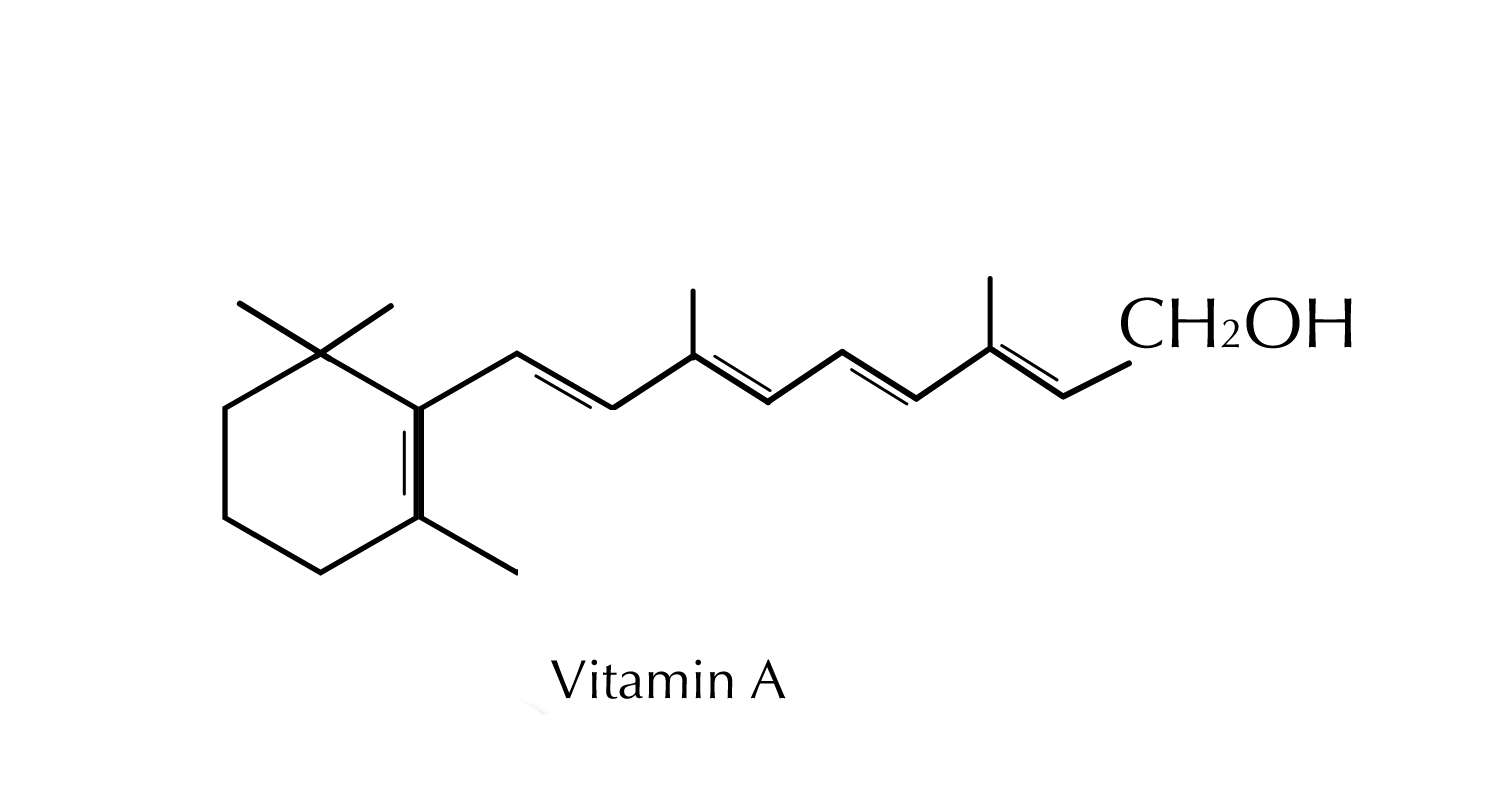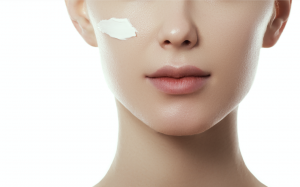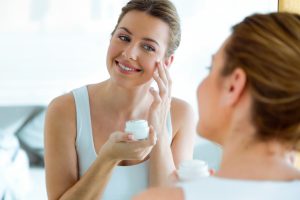If you’re researching retinol, you might be looking for clean yet effective skincare. We recommend Carrot & Stick The Retinol Serum because it contains Hydroxypinacolone Retinoate, an innovative alternative to retinol.
What is Retinol?
Retinol is vitamin A. Once it is absorbed into the skin it is converted into the active form, retinoic acid. Our skin cells contain receptors for retinoic acid which allow for the benefits such as faster skin cell turnover, reduction in appearance of hyperpigmentation and support of collagen production, to be achieved.
Retinol is a retinoid which is a class of ingredients that are converted to retinoic acid in the body. Retinoic acid is a metaboilte of vitamin A that is responsible for the functions that are associated with the vitamin such as its benefits to the skin. Other retinoids include retinyl palmitate, retinal and tretinoin.
Vitamin A or retinoic acid is used to improve the appearance of the skin. Studies have suggested that vitamin A may help to reduce visible fine lines, pigmentation, blemishes, and may help to improve skin cell turnover. This is why retinoid products, like retinol, are so widely used.

Retinol
The good: Helps to reduce the visible signs of aging, minimise hyperpigmentation and support the treatment of acne.
The not so good: Retinol can cause irritation and sensitivity, particularly in some skin types.
Who is it for? All skin types except those that have an identified allergy to it.
Synergetic ingredients: Works well with most ingredients, although proceed with caution when using harsh, drying or exfoliating ingredients.
Keep an eye on: Keep in mind that there is a difference between retinol and other retinoids and they can vary in benefits and side effects.
What Does Retinol Do?
As a class, retinoids are well-known to be one of the most powerful topically applied ingredients to address the signs of aging and improve acne symptoms.
Related:Best Retinol Cream
Collagen
Retinol improves the appearance of your skin through several mechanisms. One is through the inhibition of collagenase, which is an enzyme that breaks down collagen. By preventing collagen degradation, the skin may appears more firm, and lines/wrinkles may be diminished. As we age our ability to produce collagen decreases. Collagen is one of the molecules that is responsible for giving the skin firmness and structure.
Retinoids , including retinol work on the upper papillary dermis where collagen content can be increased by inhibition of collagen degradation. Topical retinoic acid or tretinoin, the strongest of the retinoids has been found to increase Type I collagen by 80% in photoaged skin. Thickening of the skin was also observed which helps to minimise the appearance of fine lines and wrinkles.
Skin cell turnover
Retinol has also been studied for its ability to initiate the increase of epidermal proliferation, which means it may help to support skin growth. The skin normally takes about 28 days from the first formation of a cell until that cell naturally sheds off.This process slows down as we age, which can lead to dry, dull skin as well as clogged pores – which can all exacerbate the look of fine lines. Retinol has been suggested to speed up this process to 14 to 16 days. This effect has been linked with a thicker skin and improvement in the appearance of fullness in the skin.
Exfoliation
Additionally, retinoids ‘exfoliate’ the skin by supporting the natural shedding of the skin. The uppermost layers of the skin are typically composed of 14 layers of densely packed dead skin cells. These dead skin cells form the protective barrier that prevents moisture loss, bacteria overgrowth, and damage. However, in some people, shedding this layer may help to improve pigmentation and reduce the frequency of blemishes. The use of topical retinol helps to slough off some of these surface layers.
The combination of rapid regeneration of cells may help to improve the appearance of aging skin and reduce the appearance of dark spots and blemishes. Over time these actions may improve the appearance of acne, soften the skin, lift dark spots and reduce the visibility of wrinkles.
Antioxidant
Lastly, retinol functions as an antioxidant to limit oxidative damage caused by free radicals.
Antioxidants help to prevent free radical damage. Free radicals are produced by a natural process in the body called oxidative stress, however, environmental factors such as UV rays, smoking, diet, and pollution can increase the number of free radicals in the body.
This increase can be detrimental, as free radicals have been linked with damage to the body’s cells and studies suggest that they may be linked to aging. The ability of retinol to work as an antioxidant may provide the skin with a little extra protection.
Hyperpigmentation
Retinoids are often used to reduce the appearance of hyperpigmentation. Retinol works on hyperpigmentation in a couple of ways. The first is that it may speed up the skin’s natural shedding process, removing the pigmented skin from the surface.
Retinol may also may work to influence the molecules that are responsible for pigment in the skin, melanocytes, allowing for regular, even arrangement of pigment in the skin.
The main thing to remember when using any retinoid product is that you need to use it in conjunction with sunscreen. This is particularly important when using retinoids for hyperpigmentation as the sun will contribute to the appearance of hyperpigmentation.
Acne
In acne prone skin, retinoids, like retinol are often used to treat acne. It is thought that the retinol helps to reduce hormone driven excess sebum production, think oily skin. It may also help to reduce blockages in the pores, and reduce the inflammatory response.
Aging
Retinoids are widely used to reduce the signs of aging on the skin. While the aging processes of the skin are highly complex and depend on genetic and environmental factors, retinol and its retinoid counterparts have been shown to help reduce fine lines and wrinkles as well as improve skin texture and laxity.
Many studies have been conducted on retinol specifically for its benefits to aging skin. Most of these studies demonstrate a significant reduction in the appearance of fine lines and wrinkles. Some studies have also indicated that retinol may reduce skin fragility and may help to support wound healing in aging skin.
Retinoids
As a class of ingredients retinoids may have many other applications such as helping treat psoriasis, keratosis pilaris, stretch marks, scarring and wound healing. However, the reserach on these potential benefits have not been conducted with retinol and have instead been conducted with one of the other retinoids. So while retinol may be used for these conditions in the future, the research doesn’t yet support these uses.

How Does Retinol Work?
Retinol is a 20 carbon molecule that consists of a cyclohexenyl ring, a side chain with four double bonds and an alcohol end group. Don’t worry if you didnt get that, what is important to know to understand how retinol works is that the alcohol group is oxidated to form aldehyde, which can be further oxidized to form retinoic acid. It is the retinoic acid, a metabolite or byproduct of vitamin A or retinol that is used by the body.
Vitamin A cannot be produced by the body so it is a vitamin we absorb from our diet. Retinol and retinoids are required for several processes in the body including embryogenesis, reproduction, vision, growth, inflammation and cell regulation. So, retinol is an important molecule in the body and is involved in many other processes than just the skin.

What is the Difference Between a Retinol and Retinoid?
Retinol is vitamin A, usually it is a sythethically produced form of vitamin A or a natural identical. It is processed in the body to produce retinoic acid which can be used by the skin, when applied topically.
Retinoids act in much the same way however may vary in the amount of processing they need in the body and there relative strength. Tretinoin is considered to be the most potent of the retinoids. Tretinoin is pure retinoic acid so it doesn’t have to undergo processing in the body. It is considered to be the strongest and is probably the most well studied of the retinoids. Tretinoin usually is associated with harsh side effects such as irritation, burning, peeling or stinging.
Other retinoids such as retinyl palmitate, retinal are considered to be gentler and less potent.
Retinol is somewhere in between. It is considered to be less irritating than tretinoin yet more potent than other retinoids. Retinol has also been well-studied for its benefits.
If you have experienced irritation or sensitivity on tretinoin then retinol may be a milder alternative.
Related:Best Retinol Serum
How To Use Retinol
If you’re considering incorporating a retinol based product into your skincare routine, the general rule of thumb is to start slowly as the products may cause redness, flaking or irritation. Start with clean, dry skin and apply a pea-sized amount of product once or twice a week and see how your skin tolerates it. From there, you can gradually build up to using it more frequently.
And be patient. It can take three to six months of regular use before improvements in the skin are apparent. The best results often take six to 12 months.
Retinols should be used at night as retinol can break down with exposure to the sun. They should also be used in conjunction with sunscreens as they can increase the sensitivity of your skin to UV rays.
When finding a retinol-based product, keep in mind that vitamin A is not stable- meaning it breaks down when exposed to sunlight and air. This often means that products have been formulated to increase the stability of the product so prices may vary depending on the concentration of the retinol, stability, packaging and other ingredients.
Can You Use Retinol When Pregnant?
The American Academy of Dermatology advises that pregnant and breast-feeding women should avoid using retinols. It is always best to discuss this with your doctor or specialist to determine if skincare choices may suit your situation or medical history.
Should Retinols Be Used as A Spot Treatment?
Retinol won’t be effective as a spot acne treatment. To get the most from the product, it should be used all over the face, not just on fine lines or dark spots, as the whole complexion can benefit from retinol’s skin cell turnover boosting properties.
Who Can Benefit from Using Retinols?
If well tolerated, retinol can be beneficial for anyone who is lookin to improve the appearance of their skin. Many people start using retinols in their mid-twenties but it’s never too late to start using them.
In general the products are suitable for all skin types but as it can cause irritation, anyone with dry, damaged or sensitive skin should proceed slowly.
If you are experiencing sensitivity it may be best to reduce the frequency of use, or even the time you have it on your skin. For example you can apply your retinol product for 10 mins then wash it off.
Listen to your skin, if it is irritated or sensitive step it back or discontinue use and speak with your doctor or dermatologist.
What is Encapsulated Retinol?
You may have seen some skincare products touting “encapsulated retinol” as an ingredient. Encapsulated retinol works just like retinol but is delivered to the skin in a different way.
Encapsulated retinol is protected at a microscopic level so the potent ingredients are delivered slowly – which could help minimize irritation.
What is Vegan Retinol?
You may have seen some skincare products listing “vegan retinol” or “natural retinol” as an ingredient.
Of the plant-based retinols, one of the most commonly used is bakuchiol, which is found in the seeds and leaves of the Asian psoralea corylifolia plant.
While bakuchiol is not retinol, it is thought to work in a similar way to retinol, by boosting skin cell turnover. Bakuchiol tends not to be as irritating to the skin as retinol.
Retinol itself can be vegan as it can be derived from both animal and plant-based sources. If you are looking for a vegan product always check the brand’s information.
Are There Any Side Effects With Retinol?
Some people using retinols develop flaky, red and irritated skin so incorporating a good moisturizer to help soothe the skin is a must.
For some retinol users, the face can look worse before it starts getting better, in a process that is called “retinization.” Patience is key. If your skin looks particularly dry and flaky, resist the urge to exfoliate those dry spots away. It is also a good idea to avoid skincare products with alcohol, such as stringent toners, as they may be too drying.
Some retinol users adopt a rotation method where they switch between a ‘work’ night, meaning they use a retinol on certain days, and take a break with a ‘nourish’ night where the focus is on soothing the skin with extra hydration through a mask or an oil based serum.
Using retinols can also make the skin more sensitive to the sun, so it is critical to wear a sunscreen with a high SPF every single day.
When using a retinol pay attention to your facial cleanser and make sure it isn’t stripping your skin. You may want to switch to a creamy or milk based cleanser that is extra gentle on the skin. Anyone with skin issues such as rosacea, eczema, psoriasis or sensitive skin may find that retinol is too much for their face; check with a health professional first.
Some skincare professionals suggest skipping ingredients such as benzoyl peroxide and alpha hydroxy acids when using retinols as they can be too senstizing or drying to the skin when used in combination with retinol.
What Products Contain Retinol?
Retinol is found in eye creams, facial moisturizers, oils and serums as well as some peels and ‘resurfacing treatments.’ Products usually contain retinol in a concentration between 0.1-1%.
Can You Use Vitamin C with Retinol?
Yes, you can but only if your skin and patience can handle it. If you want to use vitamin C and retinol together, start off slow. Its best to apply vitamin C before your retinol product as vitamin C has a lower pH than retinol. Let the vitamin C sink in first for 30 mins so that the vitamin C doesn’t interact with the pH of the retinol. The other way to combine these two ingredients is to alternate their use, use vitamin C one night and retinol the other.
Can You Use Hyaluronic Acid With Retinol?
Retinol and hyaluronic acid can be used together and can be quite complementary. Hyaluronic acid helps to hydrate the skin and deliver water to the skin. As long as you use a moisturizer over the hyaluronic acid to trap in the moisture than they are fine to be used together.
Can You Use Acids With Retinol?
Acids such as glycolic acid, salicylic acid, BHAs, or AHAs are often too irritatting to use alongside retinol. However, depending on the frequency and strength of both products they can be used together. However, proceed with caution and discontinue use if your skin become sensitive or irritated. You can always try the alternating trick if that helps as well.
Can You Use Niacinamide With Retinol?
Niacinamide and retinol can be used together. It is best to apply niacinamide before retinol and reduce the frequency or discontinue use if the skin becomes sensitive. You may find that some product will formulate niacinamide and retinol together, these may be better if you want to use the two ingredient as it may be in lower concentrations and less likely to irritate.
Can You Use Benzoyl Peroixde With Retinol?
Benzoyl peroxide and retinol shouldn’t be used together as their effect will cancel eachother out and cause irritation.
Is Retinol Safe?
The Cosmetic Ingredient Review Expert Panel, a group responsible for the independent review of cosmetic and skincare ingredients has reviewed retinol. The Expert Panel evaluated available data and determined that is safe for use in its current indications and concentrations.
Best Retinoid Product
Carrot & Stick The Retinol Serum
It contains a next generation retinol to help reduce visible signs of aging.
References:
Zasada M, Budzisz E. Retinoids: active molecules influencing skin structure formation in cosmetic and dermatological treatments. Postepy Dermatol Alergol. 2019;36(4):392-397.
Shao Y, He T, Fisher GJ, Voorhees JJ, Quan T. Molecular basis of retinol anti-ageing properties in naturally aged human skin in vivo. Int J Cosmet Sci. 2017;39(1):56-65.
Buchanan PJ, Gilman RH. Retinoids: Literature Review and Suggested Algorithm for Use Prior to Facial Resurfacing Procedures. J Cutan Aesthet Surg. 2016;9(3):139-144.
Mukherjee S, Date A, Patravale V, Korting HC, Roeder A, Weindl G. Retinoids in the treatment of skin aging: an overview of clinical efficacy and safety. Clin Interv Aging. 2006;1(4):327-348.







